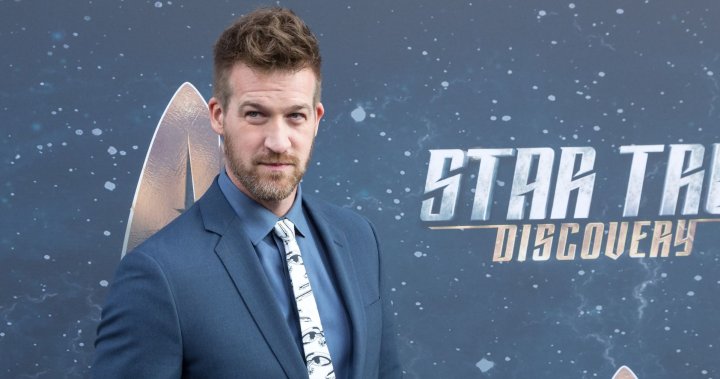Canadian actor Kenneth Mitchell, best known for his roles in Star Trek: Discovery and Captain Marvel, has died over five years after being diagnosed with amyotrophic lateral sclerosis (ALS). He was 49.
The Toronto-born Mitchell died on Saturday, according to a statement shared to his social media accounts the following day.
“With heavy hearts we announce the passing of Kenneth Alexander Mitchell, beloved father, husband, brother, uncle, son and dear friend to many,” the obituary read.
“For five and a half years Ken faced a series of awful challenges from ALS. And in truest Ken fashion, he managed to rise above each one with grace and commitment to living a full and joyous life in each moment.”
As well as a talented actor, the statement said those closest to Mitchell knew him as “a hope seeker,” “bear hugger,” a “Leafs fan” and “a proud father.”
The official Star Trek franchise also released a statement honouring Mitchell on Sunday. The franchise wrote that Mitchell’s portrayal of the Klingons Kol, Kol-Sha and Tenavik brought “a new perspective on Klingon culture to fans.”
“The entire Star Trek family sends their condolences to Mitchell’s family, friends, loved ones, and fans around the world,” the announcement concluded.
Mitchell was diagnosed with ALS — a degenerative motor neuron disease — in 2018, though he continued to act until 2022.
Breaking news from Canada and around the world
sent to your email, as it happens.
In a 2020 interview with People magazine, Mitchell said he could no longer hide his diagnosis, in part because he used a wheelchair.
He revealed he was diagnosed after experiencing constant muscle twitching, which he thought could have been a pinched nerve or multiple sclerosis (MS). Mitchell said learning that he had ALS was “a complete disbelief, a shock.”
Mitchell told People he wanted to help bring more public awareness to ALS.
“I think there’s something I can offer and I want to be a part of that,” he said. “If I can inspire one person that would mean a lot to me.
“I can’t hide it anymore. I thought instead of shielding myself away in my home, which, if that’s your choice that’s fine, too. I wouldn’t make any judgment on anyone. I don’t think anyone would on me. But, I just feel like it’s time that I get out there and be a voice.”
One of Mitchell’s Star Trek characters, Aurellio, also used a wheelchair onscreen — though it was of the futuristic, hovercraft variety. In an Instagram post from 2021, the actor thanked audiences for the “warm reception to this new character.”
“It was a special collaboration with my Discovery family that injected me with heaps of Love & Inspiration during my tough battle with ALS,” he wrote. “A reminder that despite ones [sic] disabilities there is always room for possibility & ability. Incredibly grateful for the inclusion.”
Mitchell’s obituary included a poem penned by the actor about a desire to be buried under and absorbed by a mighty tree.
“When I die, when I leave this Life, I want to become a tree, a Ginkgo, White pine, Jacaranda, Lemon, Cedar, Oak, Myrtle or Maple,” he wrote. “I want to be buried under the roots so I can be soaked up, all my matter, my energy, my love, my laughter, my tears and I want to reach up through the branches and touch the night sky.”
He played several different roles across numerous episodes in the Star Trek: Discovery franchise, namely the Klingon warrior Kol-Sha, Tenavik and Aurellio. He also provided voice work for Star Trek: Lower Decks.
Outside of the Star Trek universe, Mitchell was best known for playing Joseph Danvers, the father of the titular superhero Captain Marvel, and Eric Green from the TV series Jericho.
He is survived by his wife, Susan, and their two children, Lilah and Kallum. The actor’s family requested that any gifts be “directed to ALS research or in support of his children.”
What is ALS?
ALS, also called Lou Gehrig’s disease, triggers progressive paralysis because the brain is no longer able to communicate with the movable muscles of the body. The disease is degenerative and causes someone living with ALS to eventually lose the ability to walk, talk, eat, swallow and later, breathe.
ALS is not contagious, and there is no one thing that causes the condition. There is no cure.
About 80 per cent of people with ALS die within two to five years of being diagnosed, according to ALS Canada.
There are approximately 4,000 Canadians currently living with ALS.

© 2024 Global News, a division of Corus Entertainment Inc.























Discussion about this post